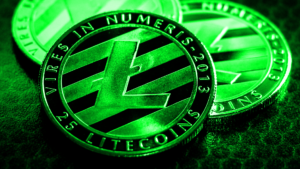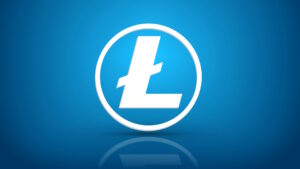In a recent interview, Chainlink co-founder Sergey Nazarov pointed out how DeFi development is accelerating as he compared today’s crypto innovation with the days of the Internet.
Currently at the top 10 in cryptocurrencies by market cap, LINK trades at $11.37 per token, according to data from Coingecko.
The most widely known Chainlink use-case is for providing accurate on-chain market data for burgeoning crypto financial markets. However, the prospect of verifiable data has various applications currently in use today. In a 40-minute interview, Sergey elaborates on what to expect from Chainlink in 2021.
What is Chainlink?
Very briefly, Chainlink works with dapps (decentralised applications) on the blockchain. Such dapps function using smart contracts which lack a critical feature, i.e., they cannot read data outside their blockchain. In practice, this means that smart contracts read time stamps and their own transaction value, but that’s about it.
Chainlink oracles solve the problem of reading reliable external data. As explained by aboutbitcoin.io, oracles allow “multiple Chainlinks to evaluate the same data before it becomes a trigger… we eliminate any one point of failure and maintain the overall value of a smart contract that is highly secure, reliable and trustworthy.”
Is a dramatic DeFi shift on the horizon?
Comparing decentralised finance (DeFi) to the early days of the internet, Sergey views the next iteration of smart-contracts as one where Chainlink interoperates data feeds in many industries.
He said: “The next evolution of smart contracts is a combination of the composability and the ability to write singular contracts with very specific goals on systems like Ethereum, and then for there to be other services represented on-chain for use of those smart-contracts – effectively expanding the universe of what they could do“.
Speaking about the horizontal capabilities for Chainlink, Sergey went on to say that the ‘composability’ of on-chain data feeds has given rise to various applications which work in unison to ‘do something useful’. Specifically, Sergey mentions the Synthetix, Aave and Yearn.finance DeFi protocols as pieces of the puzzle which are more useful than they would be individually.
Elaborating on the wide-ranging consequences of this dynamic, he continued: “This is where our space is starting to mimic the speed of evolution that you would see in the web world.”
Utilities for decentralised oracles
Per Sergey’s comments, Chainlink’s utility stretches beyond price feed data. For instance, online gaming needs reliable randomness, Sports betting needs external data, and the insurance industry for farming requires accurate weather data. According to Sergey, this is where Chainlink is heading this year.

He said: “We are now driving forward the existence of multiple types of contracts… This year (2020) we’ve seen an expansion into new categories of contracts coming into existence. One of these categories is gaming where you have randomness, sports scores and various other things people want to bet on“.
Sergey then switches gears to the usefulness of oracles in the insurance industry, whereby accurate weather data is provided to farmers who would otherwise not have insurance.
He said: “We have crop insurance using live weather data fed into a system like Arbol which is used to determine the weather and automatically pay out contractual outcomes to developed economies and emerging markets where they wouldn’t traditionally have insurance.”
Finally Chainlink is also dabbling in the concept of ‘proof of reserves’ which essentially shows you that an underlying asset exists. While this might seem trivial, it brings a level of transparency that does not exist in a world running on fractional reserve banking.
Sergey explained: “Proof of reserves shows you that an underlying asset is there and that it’s value has been retained and proves that to DeFi protocols. That allows the use of that asset whether it’s bitcoin or real estate, gold or bank accounts in the use of DeFi protocols.”
What are the risks?
As with all burgeoning assets and companies, there are some concerns with regards to Chainlink.
One such concern is the prospect of the US Securities and Exchange Commission (SEC) levying lawsuits against various altcoins claiming that they’re illegal securities. On the flip side, regulatory hammers also act as a deterrent for potential bad actors in the space who systematically off-load tokens on retail investors, as is the case with Ripple Labs’ XRP token.
Chainlink is no outlier in this respect. In fact, the company owns a large supply of the total tokens – over 60%, according to data from Coingecko. This opens various possibilities for LINK tokens such as a silent inflation, flash crashes and nefarious behaviour the cryptocurrency sector is all-too-familiar with.
If such a scenario were to unfold, it would be a shame to see the LINK marines go down the same path the XRP army took, which is all but destroyed.
Subscribe to the semi-weekly newsletter for regular insight into bitcoin and crypto. Go on. It’s free.
Join the telegram channel for updates, charts, ideas and deals.
Did you like the article? Share it!


